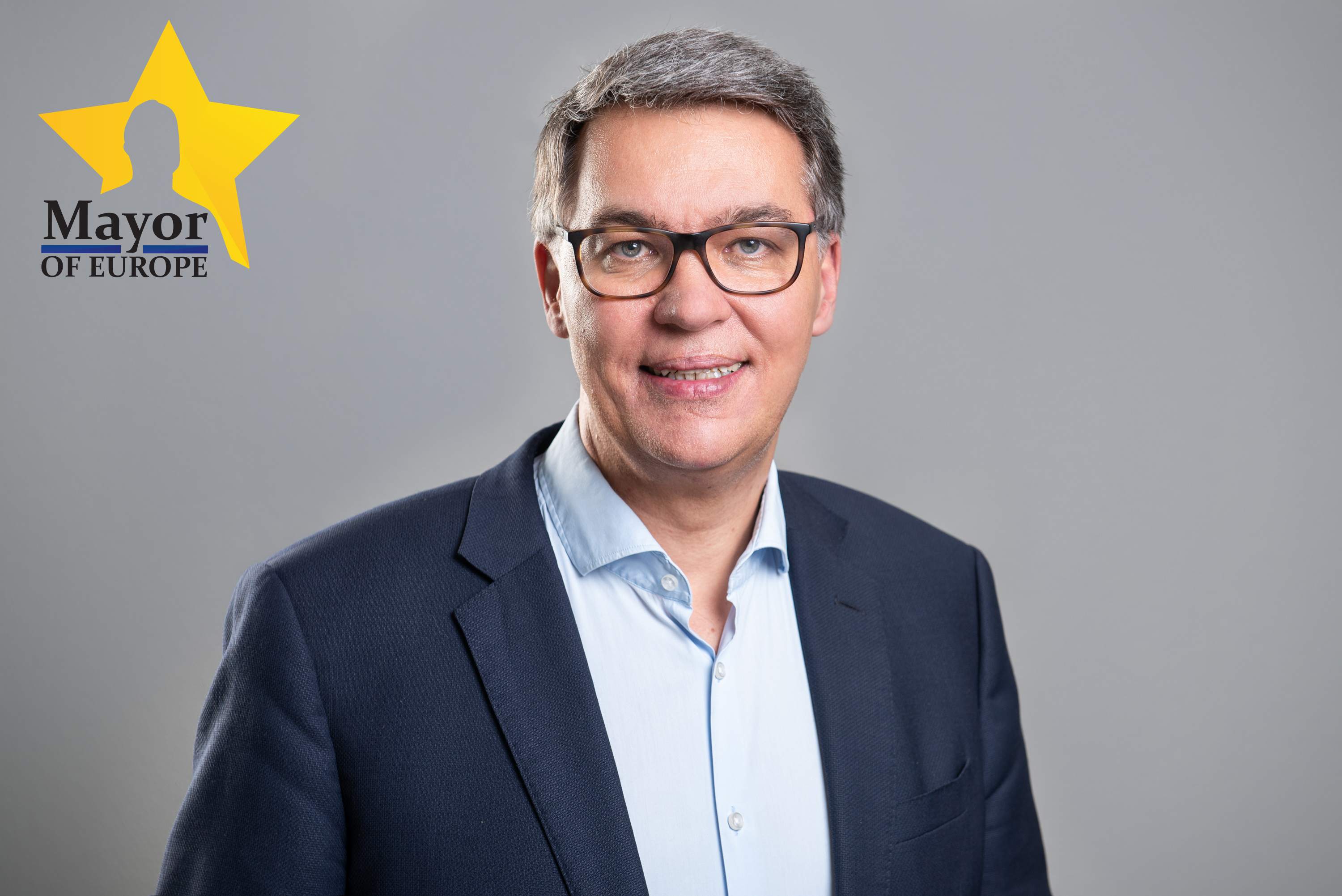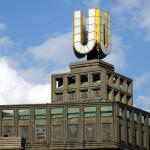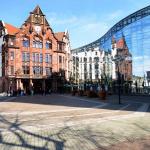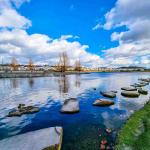Thessaloniki gets ready for its metro launch in November
The underground rapid transit lines have been under construction for almost two decades due to various project delays
 TheMayor.EU logo
TheMayor.EU logo 










Image: City of Dortmund
You do not have to be the next Einstein, all it takes is people - communicating with each other and sharing good ideas
Thomas Westphal grew up in Lübeck and studied economics at the University for Economy and Politics in Hamburg (today part of the University of Hamburg). After working in the private sector in the field of logistics and business development, he took over as Managing Director of the Economic Development Agency in Dortmund in 2013.
At the end of 2014, Mr Westphal initiated a new economic policy orientation for the city of Dortmund. It focused on founding new companies, the digitalisation of small and medium-sized businesses, as well as the establishment of new research institutes and universities as a "decisive driving force" for the future development of the city.
He has served as the mayor of Dortmund since November 2020.



Dortmund laid some important groundwork for the digitisation of our city before the pandemic. For example, our Smart City Alliance, which ensures a joint implementation of our city-wide digitisation strategy, was already set up in 2016 and since 2018 more than 40 projects have emerged from this collaboration.
This solid structure enabled us to keep up our efforts in making our city smarter – and this need became even more pressing during the pandemic. Of course, we also benefited from our universities and competence centres for different branches of technologies, from biomedicine to logistics.
We also strive to optimise digital processes within our city administration – the measures were defined in our master plan for digitalising the administration and a lot has already changed - faster than we would have expected.
This is recognition not only for our administration but for all our partners and, of course, our citizens – you can truly say that the process of building a holistic innovation ecosystem was a team effort.
The administration is an active player in this ecosystem of innovation. One example is taking a coordinating role in our joint “Science Master Plan”, which fosters the cooperation between science, culture, economy, civil society and administration.
Through networks like this, we get a great overview of innovation in the city and we can create tailor-made frameworks and activities to support it. And, of course, we also exchange experience with other cities in Europe and beyond – for example with the Romanian city Cluj-Napoca.
The award encourages us and shows that involving the urban society is the right approach if you want to create sustainable change.
I do not like to say the pandemic had its upsides but, admittedly, the process of digitalisation has experienced a strong push. In 2020, more than 200 citizens took part in the digitally conducted Helpathons (Help + Marathon) to develop ideas that will bring lasting positive change in Dortmund.
The Helpathon 2020 focussed on social innovations about life with and after the pandemic. Citizens worked on great ideas on how to support the local economy, help each other out in the neighbourhoods, and find solutions for temporarily unused spaces and storefronts in Dortmund.
We have also seen vibrant developments in terms of science and technology.
Dortmund has developed a holistic approach toward the support of entrepreneurship. Start-ups find a complex ecosystem here that gives tailored help, from the idea stage and the set-up to the further development of existing business models and intrapreneurship.
Quick growth and high profits are not always the goal, Dortmund’s innovation ecosystem is characterised by continuous support structures, sustainable business models and reliable networks.
The universities are important sources for knowledge-based start-ups. Structures such as incubators, maker spaces, prototype workshops and co-working spaces are just as important as the accompanying support – from raising awareness to advisory services, pitches with investors, seminars, summer schools and motivating competitions.
Our start2grow business plan competition for example has conducted over 40 rounds, involving over 14,000 participants, resulting in over 4,000 business plans, mentored by 600 voluntary mentors. The result: over 1,500 actual start-ups have evolved from this.
Still, not all business sectors work in the same way. With our “New Strength Strategy”, we differentiated between different kinds of companies and branches and developed individual tools for each.
In the project you mention we will develop a campus near the Dortmund port to bring together companies from the digital and creative industries, as well as educational institutions. The area will be transformed into an urban quarter with high working and recreational qualities – with office spaces and restaurants. I think we cannot wait to make those plans a reality because it will be a quarter for all citizens of our city.
A very positive one. We hope that through the title “European Capital of Innovation” people will more often think of Dortmund as a city of neighbours in the heart of Europe, a place full of fresh ideas, cutting-edge research and promising start-ups.
In Dortmund, we believe that you do not have to be the next Einstein if you want to have an impact, all it takes is people - trusting and communicating with each other, sharing good ideas.
Author: Denis Balgaranov
This page was prepared in partnership with Eurocities.
Dortmund is Germany’s first Capital of Innovation
Dortmund’s public transport fleet to be strengthened by 30 new electric buses